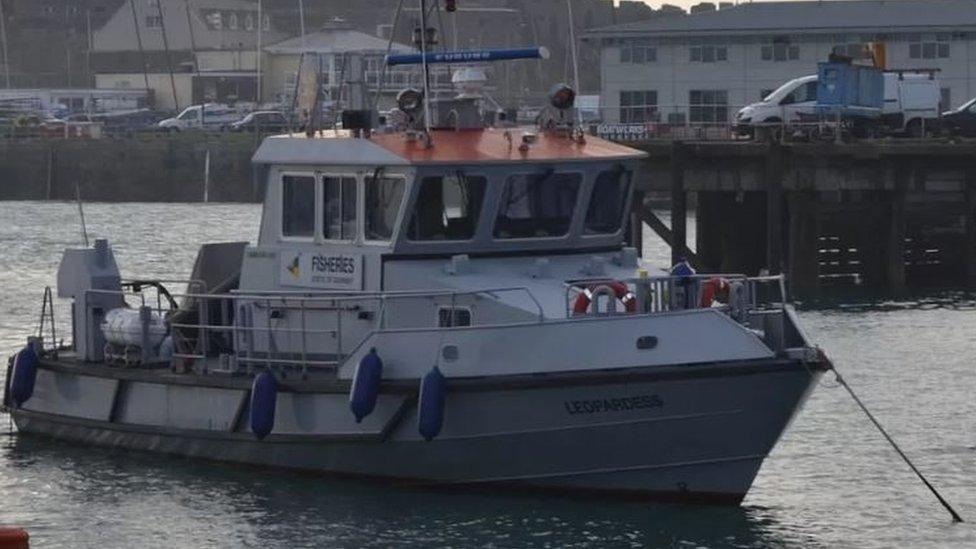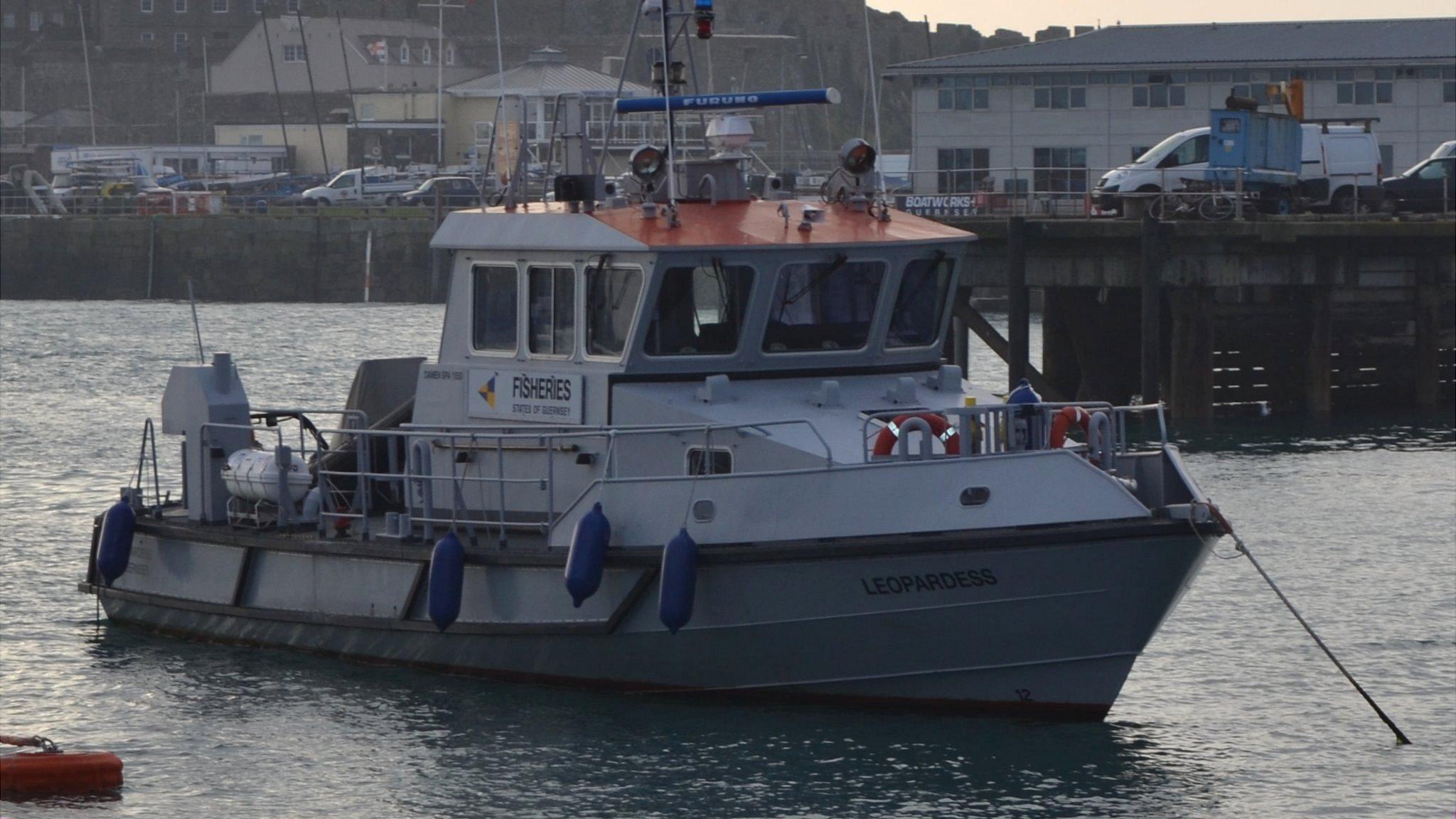Concerns over grounded fisheries protection boat in Guernsey
- Published

The boat does not currently have a compliance certificate.
Politicians in Guernsey have raised concerns over the grounding of a sea fisheries protection vessel due to its lack of legal compliance.
The Leopardess should, under Guernsey law, have a code compliance certificate to go to sea, but it does not.
Since 2019 all small commercial vessels have needed a certificate to operate.
Guernsey's harbour master told the BBC he had "granted the vessel grace" from the rules for the last four years.
But in April 2023, he said the ship needed a certificate.
The Leopardess is used by Guernsey's States to patrol their territorial waters, and is often used by Law Enforcement as part of customs operations.
In the States on Wednesday, Deputy Neil Inder, president of the Committees for Economic Development, questioned why he and colleagues had not been informed of the issue.
Deputy Inder, whose committee oversees the island's sea fisheries and the Leopardess, questioned Deputy Peter Roffey, president of the States Trading Supervisory Board (STSB).
He said: "She has recently had her operating licence withdrawn. She cannot go out. Was there a reason STSB had not identified that as a risk?
Deputy Inder said it didn't appear that Deputy Roffey's was informed.
He added: "If STSB were informed, why did it not have the courtesy to contact the sponsoring committees of Economic Development and Home Affairs?"
In response, Mr Roffey told the States: "I will make sure, if the harbour master hasn't communicated as clearly as he should have done with the Committee for Economic Development, that happens."
To get a Code Compliance Passenger Vessel Certificate, the vessel needs to have a "satisfactory survey" from one of four organisations: The Maritime and Coastguard Agency, Bureau Veritas, DNV GL Group or Lloyd's Register of Shipping.

Follow BBC Guernsey on Twitter, external and Facebook, external. Send your story ideas to channel.islands@bbc.co.uk, external.
Related topics
- Published28 September 2015
